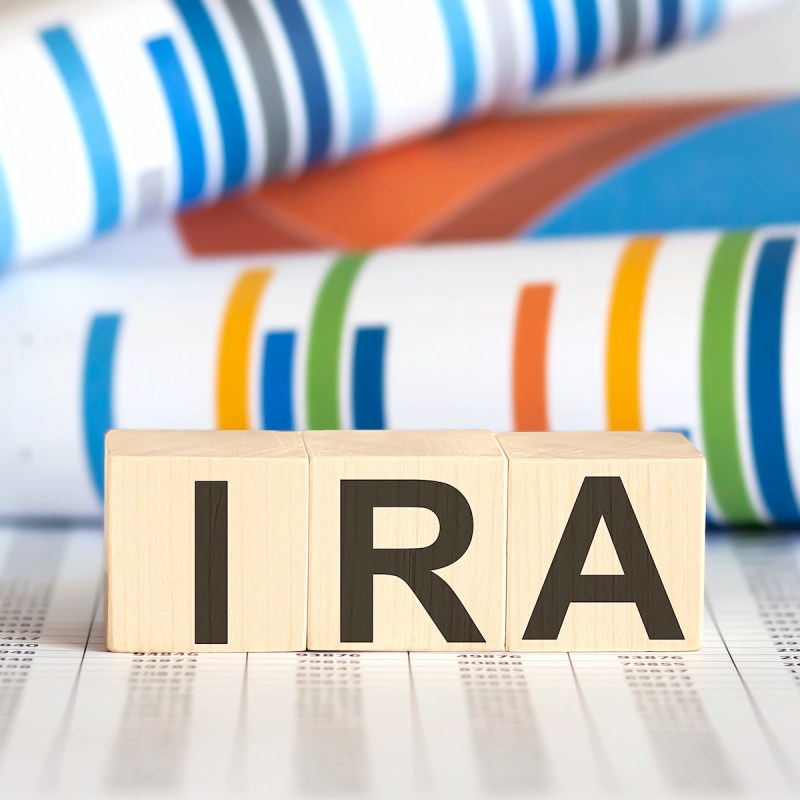
Congress wants you to save more money for retirement. Even with our very divided government, they’ve made it clear they’re trying to encourage more savings for Americans in their golden years. In late 2018, they passed one of the few bipartisan laws, the SECURE Act. The law does a lot to motivate both employers and employees to put dollars away for the future. And even now, there’s a decent chance that we will see an encore bipartisan retirement law this year, commonly called “SECURE Act 2.0.”
Videos by TravelAwaits
Any time we’re talking about Congress, though, there’s no free lunch. To pay for the favorable retirement provisions in the SECURE Act, they took away a popular estate planning technique called “stretch IRAs.” Basically, in the past, affluent retirees with leftover IRA and 401(k) accounts at death were able to pass these accounts to their children and grandchildren and spread out the payments over their lifetimes. That’s a lot of income tax being stretched out over a lot of years. Imagine the taxes saved if your retirement account payments were spread over the life expectancy of a 5-year-old grandchild!
The SECURE Act largely took this planning tool away. There are a few exceptions, with the primary exception being the passing of your retirement accounts to your spouse. Otherwise, most beneficiaries have to take out all the inherited retirement account money — and pay tax on it — within 10 years of your death. This way, the government gets its tax revenue much sooner. Taking away the stretch IRA is how Congress intends to make up a lot of the lost revenue from the otherwise positive aspects of the SECURE Act.
Planners have had more than 3 years to work with these new rules, but this spring, the IRS added salt to the wound. They issued proposed regulations that up the tax ante for inherited retirement accounts. In a surprise move, these regulations have a harsh rule if you’re old enough to be drawing down required minimum distributions (RMDs) from your retirement accounts (essentially if you’ve reached age 72). When you die, your beneficiaries can’t wait until the end of year 10 to take distributions from your accounts. Instead, they have to take annual distributions in years 1–9 and the balance in year 10.
This pushes up the recognition of taxes after you die and will make administration of these accounts messier and time consuming. This “draw it down over 10 years” approach severely limits the usefulness of these retirement accounts in estate planning.
These may be proposed regulations, but the reality is they will likely be adopted with only a few changes. Even more concerning is they may be retroactively effective to a date earlier this year. In theory, Treasury regulations are just an interpretation of current Congress-made laws, and they can be made effective as soon as they’re proposed. That means these rules could apply to already exisiting inherited retirement accounts.
Pro Tip: When Congress proposes a law, it may or may not happen; but when the IRS proposes a rule, there’s no voting involved, and you better pay attention!
What You Need To Consider If Your Retirement Accounts Are Part Of Your Estate Plan
These changes don’t affect you if you plan to use up all your IRAs, 401(k), and related qualified accounts while you’re alive; taxes will have been paid during this time. If, however, you envision leaving some healthy retirement accounts to your heirs, you should pay heed. It’s time for a fresh look at your plan.
Here are some planning tips to consider:
1. Review Your Current Strategies
Retirement accounts are passed on through beneficiary designations, not through provisions in your will. Check to make sure that your intended beneficiaries and contingent beneficiaries are correctly named. Otherwise, your retirement accounts may end up in your probate estate and be subject to probate costs.
Your attorney may have your retirement accounts going to a trust when you die. It’s quite possible that the SECURE Act, and the proposed regulations, have made your trust plans out-of-date and costly from a tax standpoint. It’s time for a review, even if that means a visit with your attorney.
2. Rethink Your Approach To Inherited Retirement Accounts
Even under the new rules, your spouse can still stretch out the taxes on your retirement accounts. Consider leaving these accounts to your spouse first, and then to your adult children. As long as your spouse is alive, you’re still stretching out your taxes.
By the time you die, your adult children may have their own tax concerns. They may be in high tax brackets themselves. If you slowly convert your IRAs and 401(k) accounts to Roth IRAs, you can both spread out your own tax and relieve your children from paying taxes on your balances at death. They will still have to draw down these accounts over a 10-year period, but the inherited Roth IRA payments will be tax-free. A bonus is that, with Roth IRAs, you aren’t forced to take RMDs while you’re alive.
Have a thought-through plan for how these retirement account balances will be handled after you pass away. If your children fail to draw down your accounts in accordance with the rules, they may be subject to the 50 percent missed RMD penalty. Half of your legacy may end up in government coffers.
3. Consider Alternatives To Inherited Retirement Accounts
In light of these changes, one strategy may be using your retirement accounts for your living expenses in retirement, and then leaving other assets to your heirs. You’ll have to pay income tax on your retirement account draw-downs (unless they are in Roths), but your other investments will have a stepped-up tax basis when you die. Different from retirement accounts, the built-in appreciation of your investment assets will avoid tax because their tax basis is adjusted to the date-of-death value.
Buy life insurance for yourself and name your intended heirs the beneficiaries. They get a known, tax-free death benefit, and you get to use your retirement accounts to enjoy a healthy and wealthy retirement. Even if you’re at retirement age, obtaining life insurance may be a sound way to improve your estate plan.
Pro Tip: If you don’t want to pay tax on your remaining retirement accounts at death, designate your charity as beneficiary. These inherited retirement account rules don’t apply to charitable gifts. You can leave a legacy and avoid taxes.
It can be frustrating when you design your estate plan and then the government messes up your approach. But increased taxes represent money that would otherwise be going to your heirs; so if there are rules that will tax your retirement accounts in an unexpected manner, you should address them. The recent proposed regulations from the U.S. Treasury are a surprise in regards to inherited retirement accounts, and they call for a fresh look. You’re still alive, so there’s still time to act.
Our retirement experts have explored many financial topics, including:
